Spiritual Healing Is It Real? Full Explanation!
Spiritual healing, while not universally accepted in scientific circles, is considered by many to be a genuine form of improving one’s well-being.
It encompasses a range of practices aimed at aligning and harmonizing the body, mind, and spirit, with numerous anecdotal claims and some supportive research indicating its potential benefits.
Spiritual healing is rooted in the belief that a life force or energy flows through all living beings, and imbalances or blocks can lead to physical or emotional ailments. It involves practices such as meditation, prayer, energy healing (e.g., Reiki), and shamanic healing.
Discover the essence of spiritual healing and its potential to harmonize the body, mind, and spirit for improved well-being.
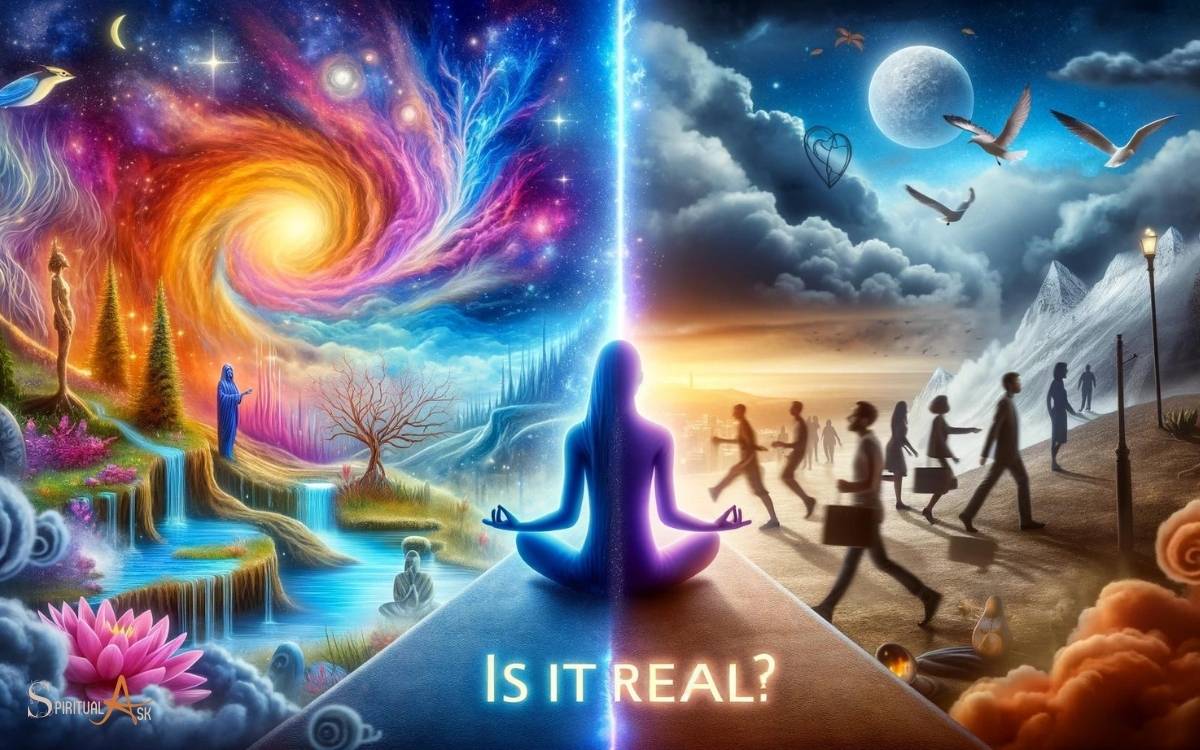
Key Takeaway
4 Practices of Spiritual Healing
| Practice | Description | Origin | Common Techniques |
|---|---|---|---|
| Meditation | A practice to focus and quiet the mind, promoting relaxation. | Various cultures | Mindfulness, Mantra, Zen, Transcendental |
| Prayer | Communicating with a higher power for healing. | Global | Intercessory, Gratitude, Petitionary |
| Reiki | Energy healing through hands-on touch. | Japan | Palm healing, Distance healing |
| Shamanic Healing | A ritual where a shaman accesses the spirit world. | Indigenous cultures | Soul retrieval, Extraction, Psychopomp |
History of Spiritual Healing
I’ve always been fascinated by the history of spiritual healing and its evolution over time.
The concept of spiritual healing dates back to ancient civilizations, where shamans, medicine men, and healers used rituals, herbs, and energy work to restore health and balance to the body and mind.
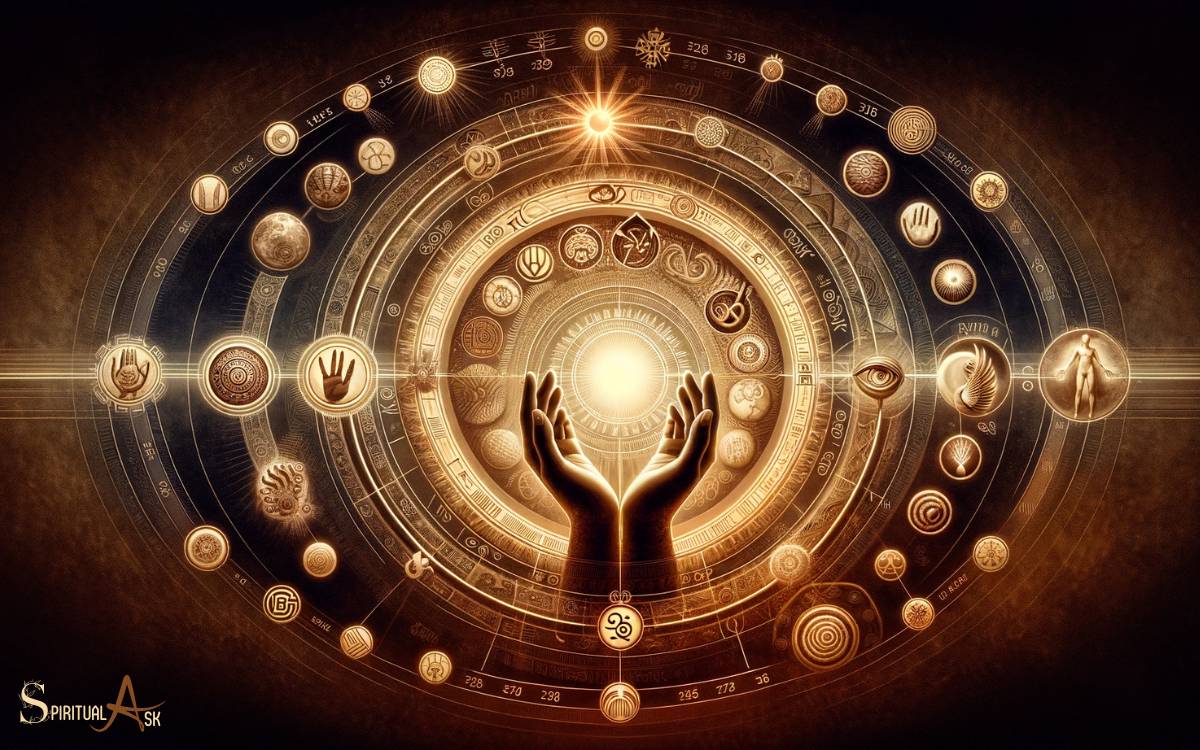
In ancient Greece, temples dedicated to the god of healing, Asclepius, were places where individuals sought physical, emotional, and spiritual healing through rituals, dreams, and offerings.
Throughout history, various cultures have practiced spiritual healing in different forms, incorporating prayer, meditation, and energy manipulation.
As societal beliefs and religions evolved, so did the methods of spiritual healing, adapting to the cultural and spiritual contexts of each era.
Understanding the historical roots of spiritual healing provides valuable insight into its enduring significance and impact on holistic well-being.
Understanding Spiritual Energy
I’ve often wondered about the nature of spiritual energy and its impact on our well-being. It’s fascinating to think about the idea that everything is made up of energy and vibrations, and how this might relate to spiritual healing.

I’m also curious about the connection between spiritual energy and a higher power, and how it plays a role in the healing process.
Energy and Vibrations
Understanding spiritual energy’s impact on healing and well-being is essential for exploring the validity of spiritual healing. Energy and vibrations play a crucial role in spiritual healing.
Here are a few key points to consider:
- Frequency: Spiritual healing is based on the concept that everything, including our bodies, has a unique frequency.
- Balance: The goal is to balance the energy within the body, which is believed to promote healing.
- Intention: Practitioners focus on directing positive energy and intentions towards the recipient to facilitate healing.
- Connection: Spiritual healing often involves tapping into the universal energy or connecting with a higher power for healing purposes.
Understanding these aspects can provide insights into the mechanisms behind spiritual healing and its potential impact on overall well-being.
Healing Through Spirituality
Exploring the concept of spiritual energy in healing, I’ve found that it plays a fundamental role in promoting overall well-being and balance within the body.
Spiritual energy, often referred to as life force or prana, is believed to flow through all living things. When this energy is disrupted or depleted, it can manifest as physical or emotional ailments.
Understanding and harnessing spiritual energy involves tapping into the interconnectedness of mind, body, and spirit.
Practices like meditation, reiki, and mindfulness help to realign and replenish spiritual energy, facilitating healing on multiple levels. It’s important to approach this concept with an open mind, as spiritual energy may not be easily quantifiable by traditional scientific methods.
However, the profound effects experienced by many individuals highlight the potential of spiritual energy in promoting holistic well-being.
Connection to Higher Power
Having delved into the concept of spiritual energy in healing, it is crucial to acknowledge the profound impact of connection to a higher power in understanding this energy’s role in promoting well-being and balance.
- Source of Spiritual Energy: A higher power serves as the source of spiritual energy, providing a transcendent force that can be channeled for healing purposes.
- Guidance and Wisdom: Connecting to a higher power offers guidance and wisdom, helping individuals navigate life’s challenges and make decisions that align with their spiritual well-being.
- Peace and Serenity: This connection brings a deep sense of peace and serenity, fostering emotional and mental equilibrium even in turbulent times.
- Purpose and Meaning: Understanding and aligning with a higher power provides a sense of purpose and meaning, anchoring individuals in their spiritual journey and promoting overall wellness.
Different Forms of Spiritual Healing
Often I find myself drawn to various forms of spiritual healing, each offering unique approaches to addressing the mind, body, and spirit.
Meditation and mindfulness practices help me connect with my inner self and cultivate a sense of peace.
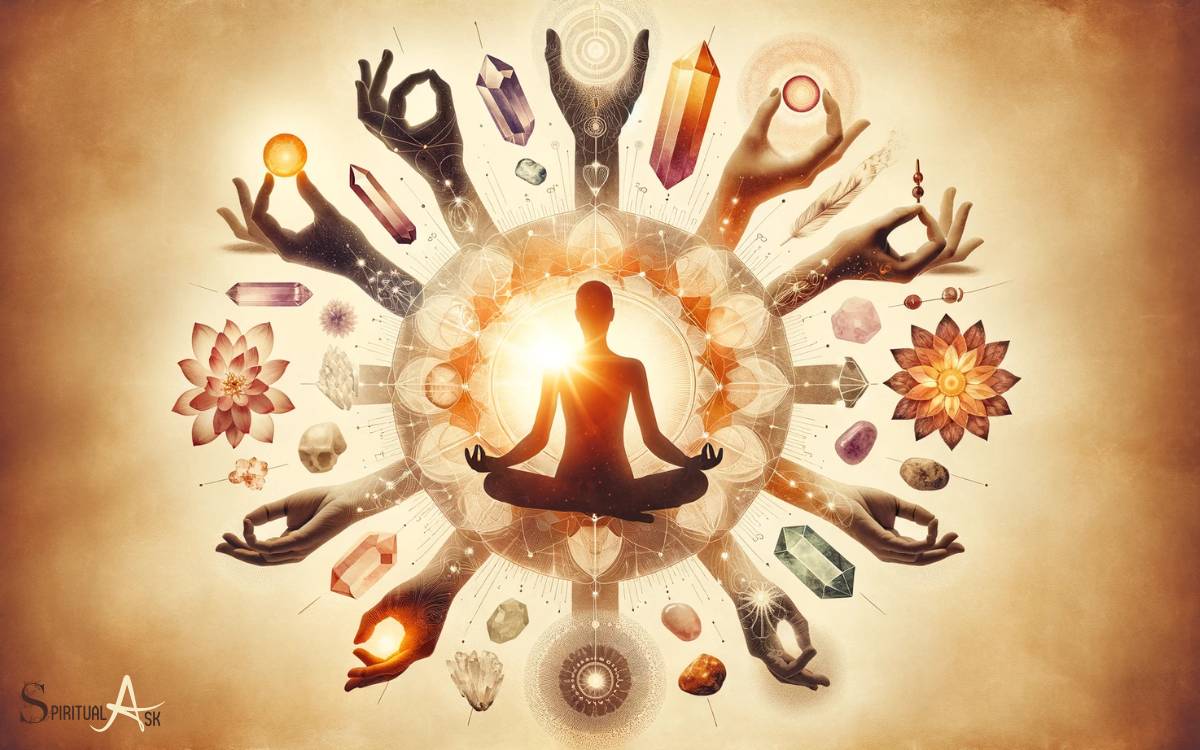
Reiki, with its gentle touch and energy transfer, promotes relaxation and balance within the body. Sound healing, through the use of specific tones and vibrations, has a profound effect on my emotional and mental well-being.
Additionally, I’ve explored shamanic healing, which involves journeying to alternate realities to seek guidance and healing from spiritual entities.
These diverse forms of spiritual healing have broadened my perspective and allowed me to appreciate the interconnectedness of all aspects of my being.
Each modality offers a unique pathway to inner harmony and self-discovery, catering to different needs and preferences.
Scientific Studies and Findings
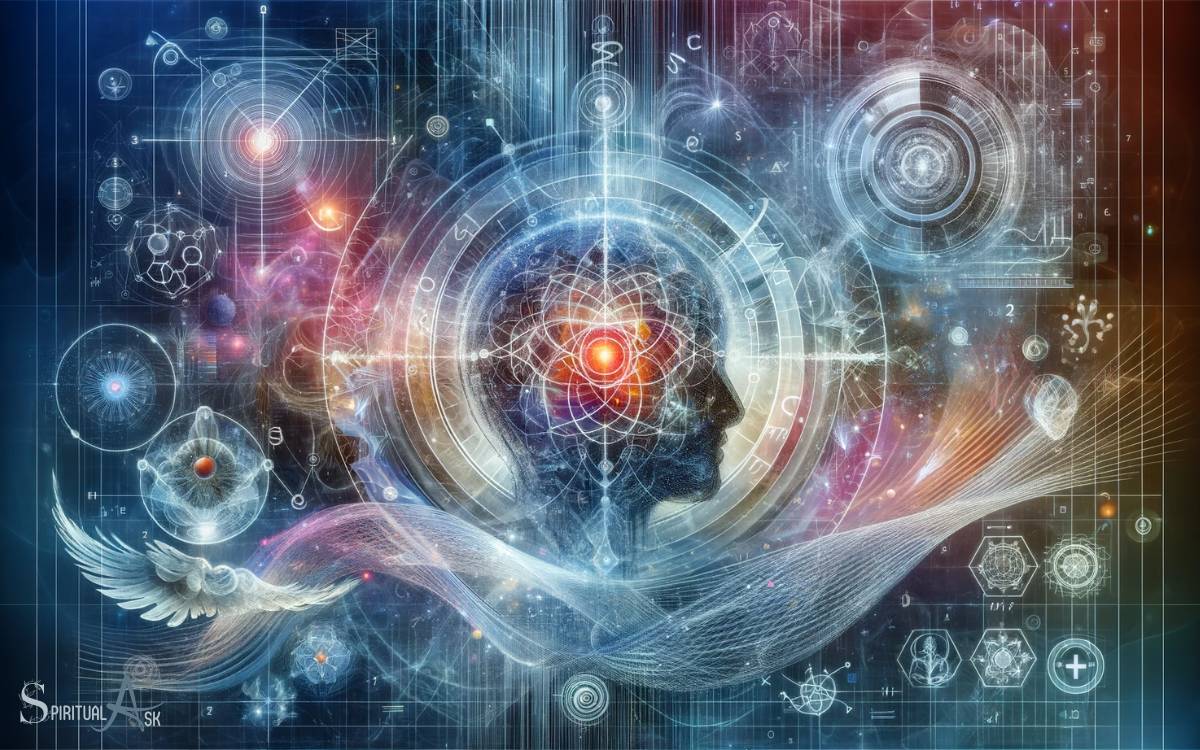
I’ve come across numerous scientific studies that suggest the potential benefits of spiritual healing, showing promising results in areas such as stress reduction, pain management, and overall well-being.
Here are some key findings:
- Reduction in stress hormones such as cortisol, leading to a calmer state of mind.
- Improved pain tolerance and decreased perception of pain intensity.
- Enhanced immune system function, potentially leading to better overall health.
- Increased feelings of positivity and improved mental clarity.
These studies provide compelling evidence of the tangible effects of spiritual healing on the human body and mind.
Personal Experiences and Testimonials
After reviewing the compelling scientific evidence supporting the benefits of spiritual healing, it becomes evident that personal experiences and testimonials play a crucial role in understanding the real-life impact of these practices.

Personally, I have encountered numerous accounts of individuals who have undergone spiritual healing and reported remarkable improvements in their physical, emotional, and mental well-being.
These firsthand narratives often convey a sense of profound transformation and renewed vitality that goes beyond what conventional medicine alone can achieve.
Hearing these stories has led me to recognize the significance of personal experiences in shaping perceptions about spiritual healing. It is through these accounts that we can truly appreciate the depth of its effects on individuals.
These testimonials serve as powerful reminders of the potential of spiritual healing to bring about genuine and lasting change in people’s lives.
Integrating Spiritual Healing With Modern Medicine

From my research and encounters with individuals benefiting from spiritual healing, it is clear that integrating these practices with modern medicine can offer a comprehensive approach to enhancing overall well-being.
This integration can involve:
- Holistic Care: Combining spiritual healing and modern medicine can address the physical, emotional, and spiritual aspects of health.
- Enhanced Treatment Outcomes: Spiritual healing can complement medical treatments, potentially leading to improved recovery and well-being.
- Personalized Care Plans: Incorporating spiritual practices allows for individualized treatment plans that consider a person’s spiritual beliefs and practices.
- Improved Patient Satisfaction: Integrating spiritual healing with modern medicine can lead to higher patient satisfaction and a greater sense of empowerment in their healing journey.
Ethical and Cultural Considerations
Although ethical and cultural considerations are often overlooked, they play a crucial role in the integration of spiritual healing with modern medicine. When considering spiritual healing, it’s essential to respect diverse cultural beliefs and practices.
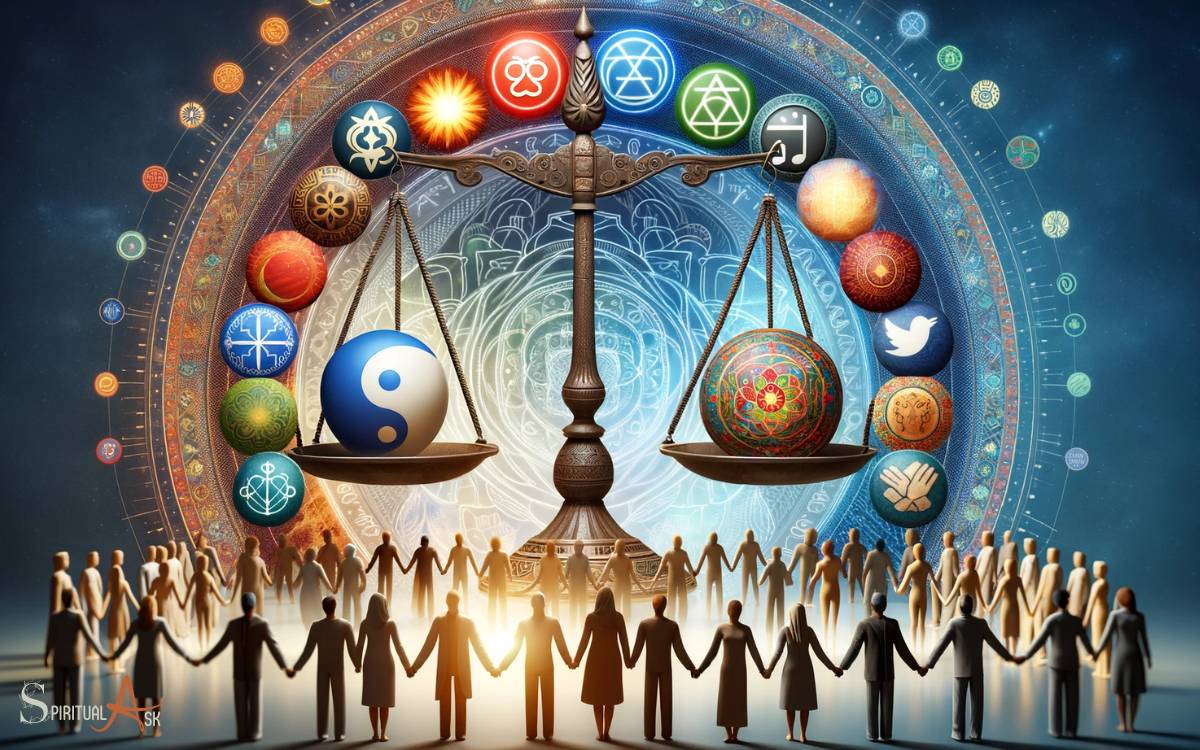
Cultural competence ensures that individuals from all backgrounds receive inclusive and respectful care.
Additionally, ethical guidelines help maintain the integrity of spiritual healing practices and protect patients from potential harm.
Here’s a comparison of key ethical and cultural considerations:
| Ethical Considerations | Cultural Considerations |
|---|---|
| Informed consent | Cultural sensitivity |
| Confidentiality | Traditional practices |
| Competent practitioners | Belief systems |
| Patient autonomy | Family involvement |
Understanding and addressing these considerations are vital in ensuring that spiritual healing is integrated responsibly and effectively within modern healthcare systems.
This awareness can significantly impact overall well-being, incorporating spiritual healing methods that align with patients’ cultural and ethical values.
The Potential Impact on Overall Well-being
I’ve found that spiritual healing can have a significant impact on overall well-being. By addressing the mind, body, and spirit, it offers a holistic approach to wellness that can lead to improved mental and physical health.
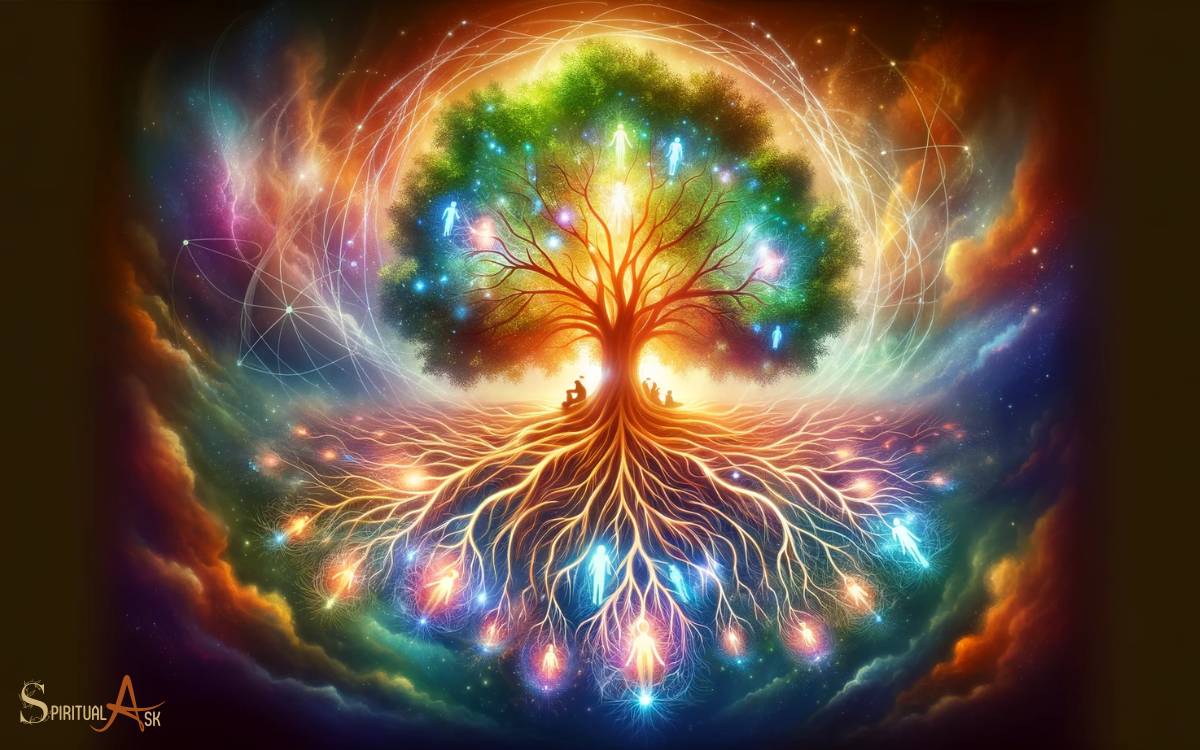
The benefits of spiritual healing extend beyond just the physical realm, and can contribute to a greater sense of peace and fulfillment in life.
Spiritual Healing Benefits
The spiritual healing benefits can have a profound impact on overall well-being. From my personal experience and understanding, spiritual healing can bring about a sense of peace and tranquility that positively influences mental and emotional health.
It can also foster a deeper connection with oneself and others, leading to improved relationships and a greater sense of purpose.
Additionally, spiritual healing practices often promote mindfulness and self-awareness, which can contribute to reduced stress and anxiety levels.
Moreover, by addressing spiritual imbalances, individuals may find a renewed sense of hope and resilience, aiding in the overall improvement of their well-being.
In essence, the benefits of spiritual healing extend beyond just the spiritual realm and can significantly enhance one’s quality of life.
Holistic Approach to Wellness
An essential aspect of holistic wellness involves recognizing the interconnectedness of physical, mental, and spiritual well-being. When considering the potential impact on overall well-being, it’s important to address all these interconnected facets.
Here’s a breakdown of how each aspect contributes to holistic wellness:
| Physical Well-being | Mental Well-being | Spiritual Well-being |
|---|---|---|
| Regular exercise | Stress management | Meditation |
| Balanced diet | Cognitive therapy | Mindfulness practice |
| Sufficient sleep | Emotional support | Connection to nature |
Taking a holistic approach to wellness means addressing each of these areas, as they all influence one another. By nurturing the body, mind, and spirit, individuals can experience a more comprehensive and sustainable sense of well-being.
Conclusion
Spiritual healing is a real and powerful force that has been used for centuries to promote overall well-being. From understanding spiritual energy to personal testimonials, the evidence is overwhelming. The potential impact on one’s health is nothing short of miraculous.
It’s time to embrace the power of spiritual healing and integrate it with modern medicine for a truly holistic approach to wellness.






